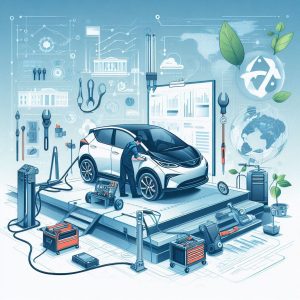 The auto repair industry operates in a space influenced by both business, like Autotronicspa, and politics. From policies affecting local garages to market dynamics shaping how repair shops compete, understanding these factors is essential for both business owners and customers. This intersection is more important than ever as the automotive industry evolves with new technologies and regulations.
The auto repair industry operates in a space influenced by both business, like Autotronicspa, and politics. From policies affecting local garages to market dynamics shaping how repair shops compete, understanding these factors is essential for both business owners and customers. This intersection is more important than ever as the automotive industry evolves with new technologies and regulations.
How Politics Shapes Auto Repair
Government policies play a significant role in the auto repair industry. Regulations on emissions, safety standards, and labor laws directly impact how repair shops operate. For example, laws promoting environmental sustainability have led to a rise in electric and hybrid vehicles. While this is good for the planet, it creates challenges for traditional repair shops that need to invest in new tools and training to keep up with these advanced systems.
Tax incentives for green energy adoption can also affect repair businesses. Shops that upgrade to eco-friendly equipment or offer services for electric vehicles might benefit from such programs. On the other hand, small businesses often struggle with the costs associated with compliance, making it essential for them to stay informed about changes in local and national laws.
Business Trends Transforming the Industry
The business side of auto repair is equally dynamic. Technology has revolutionized how repairs are diagnosed and performed. Advanced tools, like computerized diagnostic systems, have made it easier to identify and fix issues quickly. However, these tools are expensive, forcing small repair shops to balance investment with profitability.
Customer expectations are also changing. Many people now prefer repair shops that offer digital booking systems, transparent pricing, and fast turnaround times. Businesses that fail to adapt to these demands risk falling behind their competition. Additionally, supply chain disruptions, like those caused by recent global events, have impacted the availability of parts, leading to delays in repairs and increased costs.
What It Means for Consumers
For customers, the interplay between business and politics in the auto repair industry often leads to higher costs. Compliance with new regulations can drive up repair prices, especially for vehicles with advanced technologies. However, customers also benefit from safer vehicles and more environmentally friendly practices.
To navigate these changes, consumers should seek out repair shops that invest in modern tools and training. Reading reviews, asking about warranties, and verifying certifications can help ensure a quality repair experience. Additionally, customers can support local businesses that prioritize eco-friendly practices, contributing to a more sustainable future for the industry.